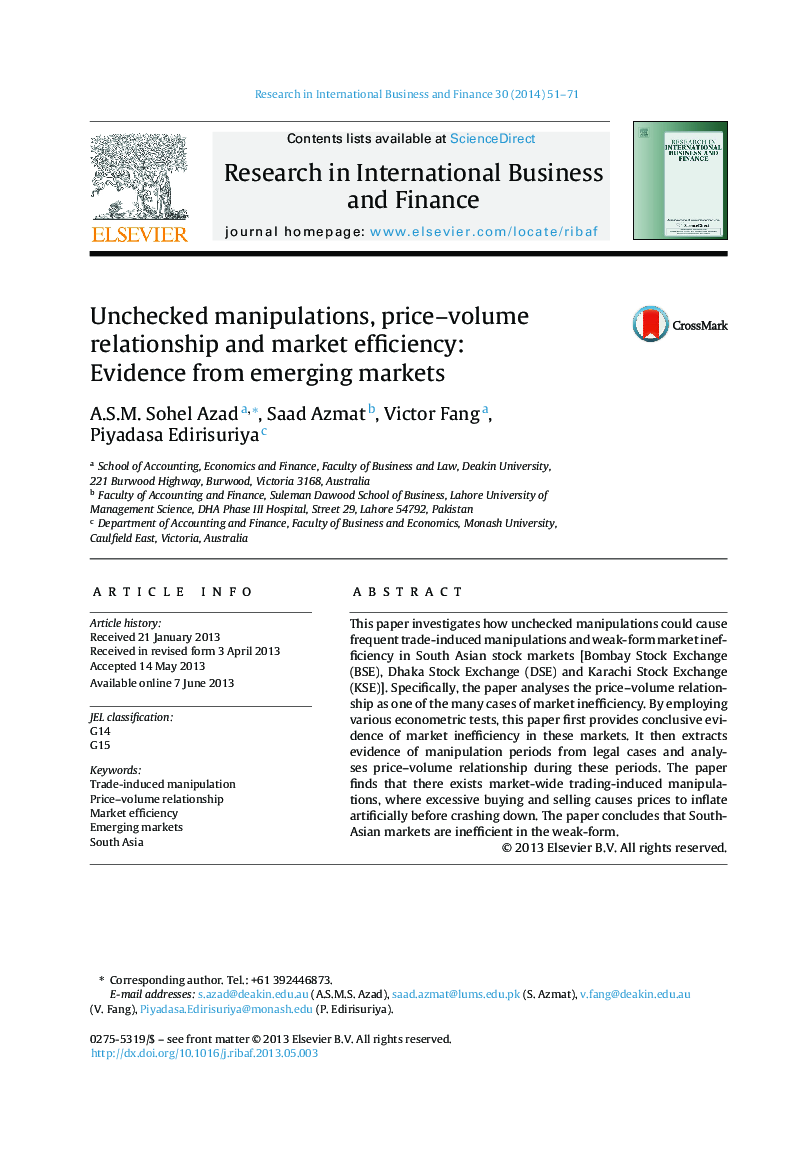| Article ID | Journal | Published Year | Pages | File Type |
|---|---|---|---|---|
| 1002919 | Research in International Business and Finance | 2014 | 21 Pages |
This paper investigates how unchecked manipulations could cause frequent trade-induced manipulations and weak-form market inefficiency in South Asian stock markets [Bombay Stock Exchange (BSE), Dhaka Stock Exchange (DSE) and Karachi Stock Exchange (KSE)]. Specifically, the paper analyses the price–volume relationship as one of the many cases of market inefficiency. By employing various econometric tests, this paper first provides conclusive evidence of market inefficiency in these markets. It then extracts evidence of manipulation periods from legal cases and analyses price–volume relationship during these periods. The paper finds that there exists market-wide trading-induced manipulations, where excessive buying and selling causes prices to inflate artificially before crashing down. The paper concludes that South-Asian markets are inefficient in the weak-form.
Graphical abstractTrade induced manipulation and market inefficiency can cause each other to aggravate. While trade induced manipulation can occur in any market, this is rather the young/developing markets, which frequently experience this kind of manipulation. General wisdom suggests that developed markets are informationally efficient, while emerging/developing markets are informationally inefficient, which is why they experience frequent trade induced manipulations. This paper suggests that if those manipulations are unchecked in the young markets, then the market efficiency can be hindered.Figure optionsDownload full-size imageDownload as PowerPoint slide
